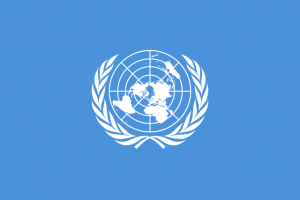
The head-in-the-sand stance of many Catholics toward the modern world leaves them unprepared to engage their contemporaries on issues as important as human rights.
The modern world, like the Bible, did not drop out of the sky into our laps. It has its history. That history is Christian. Its successes are theological, as are its failures.
The history of human rights, and today (December 10th, 2016) is World Human Rights Day, is one such example of bumbling historical amnesia.
 Catholics might be appalled by the reproductive and economic policies of the human rights establishment, but those very same Catholics deserve at least some of the blame for being ignorant of their own tradition.
Catholics might be appalled by the reproductive and economic policies of the human rights establishment, but those very same Catholics deserve at least some of the blame for being ignorant of their own tradition.
Students of history would be wise to reach for Samuel Moyn’s Human Rights and the Uses of History as a starting point for reflecting upon the legacy of human rights.
Human rights obviously did not originate in the ancient world–a period of history when “human dignity” could only be an oxymoron and nothing else:
It is true that a rise in compassion for suffering humanity was one ingredient in the explosion of claims for political rights. As Hannah Arendt once observed, in Roman times to call someone a “human” meant referring to him as “outside the range of the law and the body politic of the citizens, as for instance a slave—but certainly a politically irrelevant being.” Of course, the eighteenth century had a foundation on which it could build in conferring meaning and value on being human alone. Monotheistic religions always made room for notions of common brotherhood.
The real breakthrough came during those terrible middle ages when the cult of Christ’s suffering humanity became the centerpiece of spirituality:
The source of “empathy” with suffering humanity, for its part, has most plausibly been located in changes in medieval spirituality: Jesus began to be valued as an exemplar of corporal suffering, and Mary became central to Christian piety for having practiced the virtue of compassion. Meanwhile, it is familiar to credit the Renaissance for discovering (or rediscovering) the dignity of man; in his famous study of the Renaissance, Jacob Burckhardt claimed that this period elevated humanity from a merely “logical notion” to a morally resonant force.
We tend to emphasize the importance of the Enlightenment for the development of human rights, but the Enlightenment was only working with materials that were already there thanks to theology. Human Rights and the Uses of History continues:
The eighteenth century doubtless did more to strengthen and secularize the emotive appeals to dignified and suffering humanity than it did to create them. Still, Hunt is surely right about the crucial significance of the Enlightenment—an age of feeling as much as it was an age of reason—for spreading the value of humanity as an end in itself.
Take a look at the work of historian Ulrich Lehner if you also want to demythologize the commonplace that the Enlightenment was an exclusively secular movement, that was purely immanent-humanist. It wasn’t.
Moyn’s follow up book to Human Rights and the Uses of History, entitled Christi an Human Rights, reminds us that the Christian contribution didn’t end with the Enlightenment:
an Human Rights, reminds us that the Christian contribution didn’t end with the Enlightenment:
In Christian Human Rights, Samuel Moyn asserts that the rise of human rights after World War II was prefigured and inspired by a defense of the dignity of the human person that first arose in Christian churches and religious thought in the years just prior to the outbreak of the war. The Roman Catholic Church and transatlantic Protestant circles dominated the public discussion of the new principles in what became the last European golden age for the Christian faith. At the same time, West European governments after World War II, particularly in the ascendant Christian Democratic parties, became more tolerant of public expressions of religious piety. Human rights rose to public prominence in the space opened up by these dual developments of the early Cold War.
Moyn argues that human dignity became central to Christian political discourse as early as 1937. Pius XII’s wartime Christmas addresses announced the basic idea of universal human rights as a principle of world, and not merely state, order. By focusing on the 1930s and 1940s, Moyn demonstrates how the language of human rights was separated from the secular heritage of the French Revolution and put to use by postwar democracies governed by Christian parties, which reinvented them to impose moral constraints on individuals, support conservative family structures, and preserve existing social hierarchies. The book ends with a provocative chapter that traces contemporary European struggles to assimilate Muslim immigrants to the continent’s legacy of Christian human rights.
And so, for those inclined toward conspiracy theories: the United Nations is a conspiracy against Christians created by Christians. I’d only add that it can only be effectively criticized through its own Christian underpinnings in the medieval theology that led to human rights.
https://www.youtube.com/watch?v=M9BNoNFKCBI
See also: Catholic Historian Takes Back “Secular” Enlightenment
Consider making a donation to this blog through the donation button on the upper right side of its homepage. Think of it as humanitarian aid.
Stay in touch! Like Cosmos the in Lost on Facebook:












